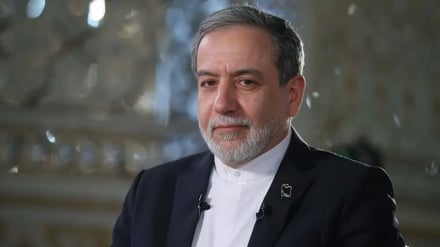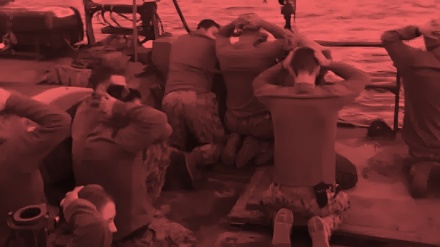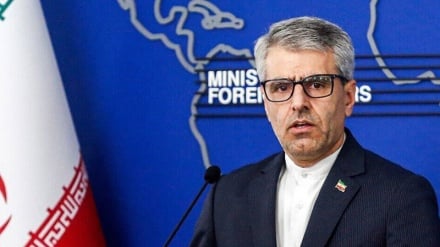A look at Saudi Arabia: Barometer of world evil
Saudi Arabia plays a huge role in today’s chaotic and crisis-riddled geo-policy.
It’s a country that simply does not get enough attention in the press outside oil revenues. Here is a partial remedy to this unfair situation. Here’s a look at one of a major practitioner of global chaos.
Athens is on fire. People in Japan are dropping like flies. In Laos, excessive rains have caused major floods and have collapsed a major dam. Sweden is on fire and firefighters from nine European countries cannot put it out. Much of the northern hemisphere is being subjected to a devastating and record-breaking heat wave. And in North Africa, a weather station recorded 51 degrees Celsius, the highest temperature ever recorded on the continent. Meanwhile, back in the United States, Californians caused power outages by turning on their air conditioners all at the same time in order to “fix” their blistering heat frustration. And this morning in Jeddah, Saudi Arabia editors of the Saudi Gazette published “Could global warming actually be hot air?”
But then Prince Mohammed bin Salman has the Saudi Aramco IPO coming up, and the Saudis don’t need any more devaluating press and delays.
Saudi Arabia is one of the key nations supporting Western proxy wars in the Middle East. Most experts on the Syria catastrophe now readily admit the involvement of Saudi Arabia, Qatar, and the usurper regime of Israel; the Iranians and other regional players contend that Saudi Arabia of funding hardline militants, including the terrorist group of Daesh. The renowned investigative journalist Robert Fisk, one of the few to have ever interviewed Osama bin Laden, reports this week for the Independent: “I don’t think either NATO or the EU has the slightest interest in chasing the provenance of weapons in the hands of militants in Syria or anywhere else in the Middle East.”
Harvard research fellow Garikai Chengu says the United States and Saudi Arabia are in collaboration in creating division among Arab states in order to minimize the influence of Iran in the region. A quote from a recent article by Chengu reveals to us the truth of U.S, Israeli and Saudi involvement in creating Daesh and fomenting regional wars. Chengu says, “The two most powerful groups in the U.S. foreign policy establishment are the Israel lobby, which directs U.S. Middle East policy, and the Military-Industrial-Complex.”
Along with the United Kingdom, Qatar, France, Turkey, Jordan, and several EU players, these supposedly peaceful nations have unleashed hell in Syria, and across Europe by extension. For Saudi Arabia’s part in all this bloodletting let’s turn to Yasmin Alibhai-Brown of the Independent to summarize that: “Saudis are active at every level of the terror chain: planners to financiers, cadres to foot soldiers, ideologists to cheerleaders.”
When US President Donald Trump bragged about the “huge” weapons deal with the Saudis, peace groups worldwide accused the United States of fueling the kingdom’s illegal war on Yemen.
When Saudi Arabia was appointed the chair of the UN Human Rights Council, a choice America cheered for, the world of human rights experts threw up their lunch in the washroom. The same country that executes somebody every other day and that beheads people for daring to protest, is now sitting at the head of the humanity’s fairness table. Yasmin Alibhai-Brown’s article brings to light the plight of Ali Mohammed al-Nimr, a Saudi who was a child when he protested, and a man who will soon to be beheaded then crucified for his protest. Now get this. Ali Mohammed al-Nimr was condemned to prison, torture, beheading, and crucifixion for allegedly encouraging pro-democracy protests using his BlackBerry.
There are hundreds of such cases. More sinister and damnable is the Saudi regime’s war on the people of Yemen. The kingdom’s war on Yemen is one of horror and immutable hatred and evil. The recent UN International Children’s Emergency Fund, UNICEF’s condemnation of Saudi air strikes on civilian water systems in Yemen is but one example of this war of attrition.
On its face, the war launched by Saudi Arabia and its allies in 2015 was supposed to be about support of Yemen’s former Riyadh-friendly government and against the Ansarollah movement and the revolutionaries. Saudi Arabia has imposed a total blockade on Yemen. Desperately needed food and medicines have been almost totally cut off from the import-dependent country as the U.S. turns a blind eye. UNICEF and many other humanitarian agencies have condemned the carnage in Yemen, but the so-called Saudi-led coalition continues. The author notes that, “in an interesting bit of irony, the people of the Donbass region of Ukraine are hammered relentlessly by artillery and mortar fire from the U.S. supported side of that conflict.” The author said, “I wonder if Russia should ask Trump for financial support to reinstate Ukraine’s previous leader? Sorry, it had to be said.”
How does one measure evil? Noted political philosopher Thomas Hobbes reasoned that the words ‘good’ and ‘evil’ are synonyms of ‘desired’ and ‘hated.’ Or in other words, we adjudicate good and evil based on what we want. Hobbes’ definitions really do simplify our understanding of the global mess we are in. President Trump and all the liars in Washington want cheap oil, a hegemony based on confounding the rest of the world, and billions in their personal bank accounts if possible. Peace on Earth, you see, is just the lip service Miss America contestants utter to sound sweet. American officials don’t want any kind of peace, let’s just spell it out. Saudi Arabia is evil, and America is by proxy, this is a real-based assessment based on the fact that the world nations do want world peace.
Let’s look at this whole “evil” aspect in another way. Suppose, for instance, that instead of utterly destroying Syria to get at the popular President of the country Bashar al-Assad, that we, the Americans, utterly destroy Saudi Arabia and dethrone its king? What a coalition of like-minded “world peace” striving nations invade Saudi Arabia, freeze the royal assets globally, and turn the country back over to its people? No seriously. Bounce the ramifications about in your head. What if we treated Syria as we do the Saudis? What are the barriers there? What would the consequences be?
If we, the Americans, can fund terrorists to overthrow Libyan or Syrian leaders to achieve an alleged ‘global objective’, we can choose the alternatives too. If the world is screwed up because of our past policies, then why do we continue them? The answer is really simple. American policies toward Saudi Arabia have served the purposes of the dealmakers who created the policies, that’s all.
If you believe that a nation that chops off the heads of young dissidents and then crucifies their dead bodies in public is good, then there would be no words for you. However, if you believe that the excesses and eccentricity of Saudi princes are a blight on the Saudi people and all humanity, there may be hope in the world. Rulers that build towers in the sand to honor and embellish themselves – well, we’ve seen our fair share of tyrants in history. We witnessed trillions and trillions in oil revenues over the decades were pumped out of Saudi Arabia, and the best the people of the region can hope for is more killing and strife. When judging the actions of nations, it is important to consider the actions of each of us, even inside the United States of America, as individuals. What is evil, after all?
Let’s not forget that, “The battle-line between good and evil runs through the heart of every man, not through the lens of policy games.”
That was from an article by author of many books Phil Butler who is a policy investigator, analyst, and a political scientist and expert on Eastern Europe.
EA


